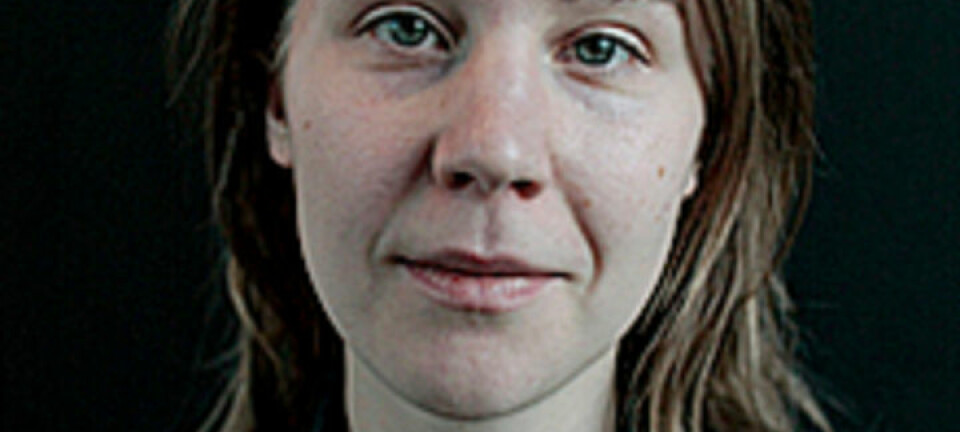
New project will identify the risk factors for Schizophrenia
A large research project will study genetic data and vitamin D levels from 80,000 newborns to narrow down the causes of a number of mental illnesses, such as schizophrenia and depression.
Low vitamin D in pregnant women and newborns can influence brain development and increase the risk of schizophrenia.
These are the initial conclusions of a joint research project between Aarhus University, Denmark, and the University of Queensland in Australia.
Professor John McGrath, an Australian psychiatrist, will be based at Aarhus University for five years to establish the basic research project that will investigate the environmental and genetic factors of schizophrenia and other mental illnesses.
The project is financed by the Danish National Research Foundation, for almost 4.4 million USD.
“It will be very exciting if the new project supports the hypothesis that low neonatal vitamin D is linked to later mental disorders. It raises the possibility that the use of vitamin D supplements in women at risk of low vitamin D may protect their offspring from later schizophrenia and perhaps other mental illnesses,” says McGrath.
However he emphasises that schizophrenia and other metal illnesses are the result of both genetic and environmental factors and that, if the hypothesis is true, vitamin D may be linked to a subgroup of those with schizophrenia.
Read More: Breakthrough for depression, schizophrenia, and high blood pressure
Blood samples from newborns should provide answers
McGrath and his colleague, Professor Preben Bo Mortensen from the National Centre for Register-based Research at Aarhus University, Denmark, will study schizophrenia, depression, bipolar disease, ADHD, and autism.
The project will use data from the Danish social security register and the psychiatric central register, from which they have already identified 50,000 people diagnosed with one or more of these mental illnesses, and 30,000 who have not. They will compare these data with people’s vitamin D level, measured shortly after their birth.
“We will measure the vitamin D level in blood samples from 80,000 newborns and see if low vitamin D is linked to an increased risk of later schizophrenia, bipolar, depression, ADHD, and autism,” says Mortensen.
Blood is taken from the infant’s heel as part of a PKU test. In Denmark, newborns have regularly received this test since 1982 to screen for a range of diseases. All PKU tests in Denmark are held in the biobank at the Statens Serum Institute.
Read More: Can sleep prevent schizophrenia, Alzheimer's and ADHD?
Genes may effect vitamin D metabolism
They will also study genetic factors in the newborns and explore how these interact with environmental factors like vitamin D. In this respect, the Danish registers uniquely offer a wealth of material.
“For example, we will explore if genes linked to vitamin D concentration and calcium metabolism are involved in the risk of mental disorders,” says Mortensen.
Vitamin D is important for regulating calcium, which has a large impact on brain function.
“The amount of calcium that flows in and out of nerve cells is important for the development of many metal illnesses. We can look at the connection more closely, because we have both the vitamin D and genetic analyses from people with the disease,” says Mortensen.
“We’ve studied the molecular mechanisms that link vitamin-D and brain development for several years. We have some very promising clues to follow up in the years ahead. says McGrath.
Read More: New method helps schizophrenics become self-aware
Register data reveals important details about suicide
The project will be a big boost to the field of schizophrenia research, says Professor Poul Videbech, a doctor from the Psychiatric Centre Glostrup, Denmark.
“This type of research is unimaginably inspiring for all of psychiatry. And some of the most talented people [are involved], so I’m happy on their behalf and on behalf of Danish psychiatric research,” he says.
“We know that psychiatric patients live around twenty years less than all others. There are many reasons why, and we can map these with the help of the Danish registers and the unique expertise that they have established at the Centre for Register-based Research,” says Videbech.
Read More: Old drugs can treat new diseases
Depression and anxiety represent 20 per cent of disease burden
McGrath and Mortensen are not only interested in vitamin D.
McGrath also works closely with other scientists from the University of Washington on a worldwide project, the Global Burden of Disease. He hopes that the Danish results can also contribute to this project.
“We’ll look at the burden of disease for mental illness in Denmark based on the Danish registers. We already know that depression and anxiety account for 20 per cent of the collective burden of disease in Denmark. For example, there’s a big burden on society if a young person develops a mental illness at the age of 17 and doesn’t finish school or get a job,” says McGrath.
Depression and anxiety often have a larger burden than, for example, cancer, as these diseases often appear earlier in life.
“Mental illnesses are also linked to other general mental disorders. For example, when you have schizophrenia, you may also be more prone to other psychological disorders or obesity, diabetes, or hypertension. We will explore these research questions in the years ahead,” says McGrath.
----------------------
Read the Danish version of this story on Videnskab.dk
Translated by: Catherine Jex








